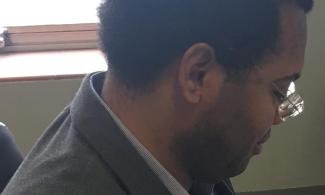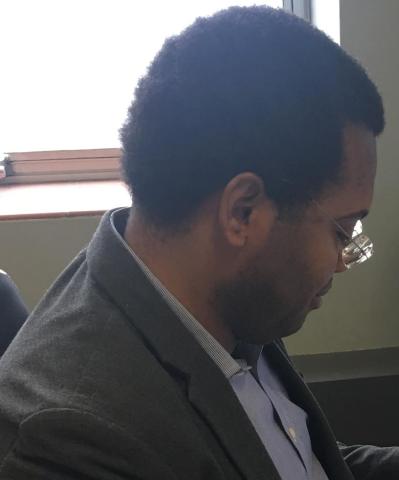
President Muhammadu Buhari recently approved $1 billion for procurement of security equipment. Many concerns were expressed about the announcement.
These included the approval of such colossal sum by the president without authorization by the National Assembly, and the rationale behind such huge expenditure to combat an organization that the government claimed had been “technically defeated”. Some were concerned that the money was simply Buhari’s re-election budget masqueraded as funds for arms. Of course, the cynicism of many Nigerians stemmed from a telepathic understanding that the fund might be embezzled by an assorted selection of parasites in governments. The situation is in fact much more complex and the actors more heterogeneous.
The arms market constitutes less than one percent of global trade but contributes 50 percent of corrupt deals in the world, according to a US Department of Commerce report. One study shows that up to 15 percent of money spent on weapons were bribe payments. Such payments are technically not legal in most countries but are categorized under “consultancy fees” or “commission” in several others. In a country like Nigeria, averagely smart officials and their business partners will likely get away with it. Transparency International estimates bribe payments in the arms industry to be worth $20 billion per annum. Therefore, Nigeria’s $1 billion extra-budgetary arms fund is a small part of a larger global oasis of corruption.

A study by Morris Szeftel demonstrates (and this is no comfort) that countries like Russia, France and Italy lose larger sums to defence industry corruption although such corruption on the African continent tends to be more damaging to socioeconomic development and political stability.
How will Nigeria’s $1 billion arms fund be spent? We can make a number of intelligent hypotheses based on available evidence from studies on arms procurement in Africa and around the world as well as evidence from Dasukigate.
First, the equipment will likely be bought from third parties rather than directly from manufacturers. Therefore, Nigeria will pay more per unit. Second, used weapons will likely be acquired instead of new ones. This keeps alive the carousel of corruption since we will need (earlier than usual) another budgetary allocation for the same or similar equipment. Consequently, Nigeria can expect to mint new criminal millionaires.
The latter will come from four categories of persons: A small number of top military officers, defence ministry officials, the famed “cabal” in the presidency and arms dealers (local and foreign).
To be fair, this is not a particularly Nigerian phenomenon.
Sanjeev Gupta and his colleagues have linked the phenomenon to the intense competition among arms manufacturers and dealers, which leads to willingness not to play by rules. Other factors in the scholarly literature include the fact that defense procurement is often concentrated in a small number of state officials and the market for military equipment tends to have a small number of producers and suppliers.
Therefore, the arms money will be spent in a market that is far from competitive. Considering that defence spending is generally opaque, as it is treated as a matter of national security, more opportunities exist for corruption.
We may also add a small but significant detail: Many military equipment are highly technical in nature. This implies that only a small number of people — military or civilian — understand what they mean and how much they truly cost. For instance, how many officials in the Ministry of Defence or the Defence Headquarters know the difference, degree of tactility or inter-operativity of the following types of drones MQ-9 Reapers, RQ-7 Shadows, RQ-4 Global Hawk and AeroVironment Wasp IIIs? The National Assembly might be totally hopeless even if it were not dysfunctional in exercising oversight on such purchases. The equipment may be over-priced under extremely technicist and fancy names.
The analysis above presupposes that arms are actually purchased. One basic form of corruption in arms procurement is simply not buying any arms. Nigeria is one of the global leaders in this area. Recall that several former service chiefs are currently facing corruption trials. One of those is former Chief of Air Staff, Air Marshal Mohammed Umar Dikko, facing charges of fraud amounting to approximately N9.7billion. One prosecution witness said that he “personally” gave Dikko N558.2million per month from November 2010 to September 2012, according to a statement by the EFCC.
Dasukigate offers insight into the penetralia of defence corruption in Nigeria. Those who shared the $2.1 billion arms fund come from an eclectic mix of backgrounds: Politics, media, military, traditional institutions and the clergy. The scandal began from the president, who seemed to have approved the funds without oversight. Categories of persons charged with receiving the arms money included 17 serving and retired senior military officers. At least 241 companies were alleged to have been involved. My analysis of a presidential statement issued on Dasukigate suggests a huge turnover in the Permanent Secretary and Director of Finance and Accounts at the Ministry of Defence.
These two positions are lucrative; Nigerians should be on the lookout vis-à-vis the new arms fund. Of the 12 indicted civil servants in Dasukigate, 10 were from the Ministry of Defence. Three of the officials from the Ministry of Defence had served as Permanent Secretaries while five had served as Directors of Finance and Accounts at the Ministry of Defence. This is no coincidence. Consequently, Dasukigate is an exemplar of what may happen to the current arms funds.
However, let us assume that the $1 billion is truly for arms purchase. Many of the purchased equipment will have a shorter lifespan than anticipated due to poor maintenance culture. For instance, Nigeria’s Aerostar drones bought from Israel in 2006 were quietly rotting away in 2014 when needed to assist with the rescue of the Chibok girls.
A May 2014 Reuters report quotes an Israeli source: “We did receive an inquiry from them (i.e. Nigerian officials) about spare parts, but it never turned into a deal. I wish it had… (The drones) are probably parked in a yard somewhere”. The report estimated that each drone would have cost between $15 million and $17 million. Nigeria relied on drones from the US and the UK for reconnaissance immediately after the Chibok kidnapping.
Nigeria would be fortunate to have 50 percent of the funds actually spent on tangible weapons and equipment. How’s that possible? The bidding process is rarely open, 15 percent is routinely spent on commission, 15 to 20 percent often goes to overpricing by third party “sellers”. State officials may also add five to ten percent in addition to the price offered by third parties. Miscellaneous or logistical spending may take up to five percent.
This includes first class or business class travel, 5-star hotel accommodation as well as estacode for some government officials. The deals are rarely concluded in a single meeting; therefore, there may be multiple travels by several officials responsible for arms purchase.
You may also add to that embezzlement of 10 to 15 percent of money designated for maintenance.
Maintenance costs are usually (but not always) factored into arms deals. Consider that the March 2018 $1.076 billion arms deal between the US and Saudi Arabia included $300 million for spare parts for military vehicles and $106 million for helicopter maintenance, according to an al-Jazeera report. That was over 37 percent of the deal.
Embezzlement of maintenance budget tends to be routine in the developing world. Maintenance costs are inserted into subsequent budgets with few people aware or recalling that it had already been included in the initial purchase. Poor maintenance means restarting the process described above.
These are conservative estimates depending on the government’s brigandage and complicity at the highest level. It is simple arithmetic. Nigeria would be fortunate to have real value for 50 percent of the total arms budget.
It is the nature of two beasts: The peculiarities of the defence industry as a cesspool of corruption everywhere in the world and the particularities of Nigeria, one of the world’s most corrupt states with expensive elite.
Follow ‘Tope Oriola on Twitter: @topeoriola